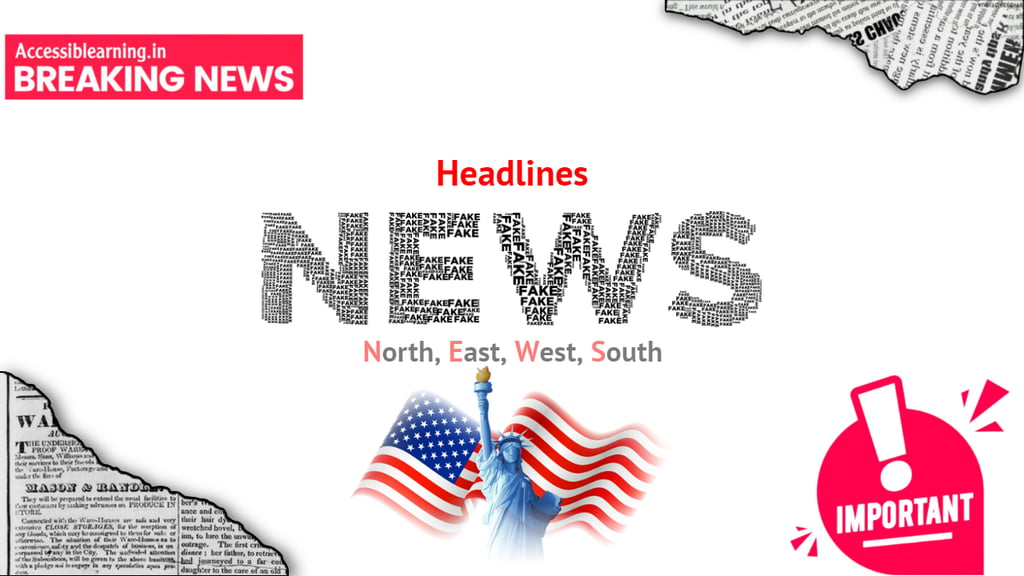
America Weekly Report: Political Turmoil, Economic Alarms, and National Security Challenges
A detailed roundup of last week’s major events across the United States — from the government shutdown and trade tensions to military crises, legal battles, and growing economic uncertainty. Explore how each story is shaping the nation’s future.
USANEWS/CURRENT AFFAIRSGLOBAL ISSUESNEPOTISM/SOCIAL ISSUES
Kim Shin
10/13/20256 min read


Last week in America was one of intense transformation—politically, economically, and socially. The nation grappled with a deepening government shutdown, legal showdowns involving state leaders, and rising international tensions that echoed across global markets.
Amid economic warnings and domestic protests, the United States stood at a defining crossroads, where governance, justice, and security all came under scrutiny. Each event—from Washington’s political standoff to tragedies on military grounds—reflected a country struggling to find balance between strength and stability. This comprehensive roundup highlights the key developments that unfolded across the nation—each holding its own weight in shaping America’s path forward.
U.S. Government Shutdown Deepens—Federal Operations Halted
The United States entered its first major federal government shutdown in nearly seven years after Congress failed to reach a funding agreement by the October 1 deadline.
This deadlock has forced hundreds of thousands of federal employees to stay home without pay, while many essential workers continue their duties without financial assurance.
At the heart of the conflict is a deep political divide: Democrats demanded funding extensions for healthcare and social welfare programs, while Republicans—led by President Trump—insisted on budget reforms and spending cuts before any negotiation could resume.
The shutdown is already straining the economy, delaying public services, disrupting travel systems, and slowing government contracts. Economists have warned that if the impasse continues, it could begin to affect U.S. growth and consumer confidence.
More importantly, this crisis is testing how much pressure federal workers and ordinary citizens can withstand under prolonged political gridlock.
Legal Clash Over National Guard Deployment in Illinois
A major constitutional debate erupted last week when the Trump administration moved to deploy federalized National Guard troops in Chicago and other parts of Illinois.
The state government, led by Illinois officials, filed a lawsuit arguing that the deployment was unconstitutional and infringed upon state sovereignty. A federal appeals court temporarily blocked the order, allowing the troops to remain under federal control but barring them from operational missions.
The conflict has sparked discussions about executive power and the limits of federal intervention in state affairs. Many legal experts say this case could set a significant precedent in defining how the federal government uses military forces within U.S. borders.
New York Attorney General Letitia James Indicted on Fraud Charges
In one of the week’s most politically charged developments, New York Attorney General Letitia James was indicted on mortgage fraud and false statement charges.
Prosecutors allege that she misrepresented a Virginia property as a personal residence to secure more favorable loan terms. James has denied any wrongdoing, calling the charges politically motivated.
Her indictment comes amid a series of legal actions against several former critics of Donald Trump’s administration, leading to accusations of selective prosecution.
The case has triggered a larger debate over the independence of the justice system and whether political influence is eroding the nation’s legal integrity. Regardless of the outcome, the case marks a tense moment for American law and politics.
U.S.–China Trade Tensions Hit American Farmers
Trade tensions between the United States and China intensified last week, dealing a heavy blow to American farmers—particularly soybean producers in the Midwest.
China, a major buyer of U.S. soybeans, reduced its imports amid worsening diplomatic and trade disputes. The decision has left American farmers facing revenue losses, declining crop prices, and mounting debt concerns.
Agricultural groups and lawmakers from farming states have urged the White House to provide relief measures or reopen negotiations with Beijing. Without a breakthrough, many fear that the next harvest season could bring a wave of financial distress across rural America.
The situation underscores how global politics can directly affect local livelihoods—turning farms into front lines of international conflict.
U.S.–Ukraine Diplomatic Talks Intensify
Despite domestic challenges, the United States remained active on the foreign policy front. President Trump held discussions with Ukrainian President Volodymyr Zelensky, reportedly focusing on expanding military aid and enhancing air defense cooperation.
This step indicates a continued U.S. commitment to supporting Ukraine amid the ongoing war with Russia. Washington’s willingness to provide advanced weapons and defense systems marks a significant escalation in its support strategy.
Analysts see the talks as part of a broader American effort to maintain global influence even as domestic crises dominate headlines.
Federal Layoffs Begin Amid Shutdown Pressure
For the first time in recent history, a government shutdown has led to permanent layoffs rather than temporary furloughs. Thousands of federal workers across various departments have been dismissed as agencies run out of funds to maintain staff.
This move reflects the administration’s effort to use the shutdown as leverage to restructure parts of the federal workforce—an approach praised by fiscal conservatives but criticized by unions and public sector employees.
The layoffs have raised concerns about long-term damage to institutional operations, loss of skilled workers, and a decline in public trust toward government stability.


Trump Orders Military Pay During Shutdown
Despite the federal government shutdown, President Trump announced he had directed the Defense Secretary to use available funds so that active duty service members would receive pay by October 15. He emphasized his role as Commander-in-Chief and framed the move as a moral and security imperative.
This decision underlines the unique status of the military in budget crises—while many parts of the government are frozen, the administration is striving to shield the armed forces from financial disruption. But critics argue the move may be legally or politically controversial if funds are not properly authorized.
Threat of 100% Tariffs on China Escalates Trade War
Tensions with China rose sharply as President Trump threatened to impose 100 percent tariffs on Chinese imports starting November 1 (or earlier), accusing Beijing of hostile actions, especially in restricting rare earth exports needed by U.S. industries.
The threat rattled markets and revived fears of a broader trade war. The move signals that trade policy remains a key lever in U.S.–China competition, with consequences for global supply chains, manufacturing, and tech sectors.
Warning Signs of a Possible U.S. Recession
Economists at Oxford Economics sounded alarm bells about the U.S. economy: their analysis suggests that if the technology sector falters, much of current growth would evaporate. The dependency on tech investment is now seen as a fragility.
The warning is especially timely amid the shutdown and uncertainty surrounding government spending. With consumer confidence wavering and investment flows unpredictable, the economy may be entering a delicate phase.
Intensified ICE Enforcement and National Guard Deployment in Cities
Amid the shutdown, federal immigration enforcement saw a marked escalation. ICE (Immigration and Customs Enforcement) operations increased in several cities, drawing protests and legal challenges over civil liberties and due process.
Simultaneously, the administration continued attempts to deploy National Guard troops in urban centers (like Chicago), though courts have blocked or limited some of these efforts. The alignment of aggressive enforcement and militarized presence in cities raises serious questions about the balance between security and civil rights.
White House Hosts U.S. Hostage Survivor in Gaza Conflict Context
President Trump announced he would host Edan Alexander, an Israeli-American who spent 584 days in Hamas captivity, at the White House to mark the anniversary of the October 7 attack on Israel. Alexander’s story has become a focal point in U.S. diplomacy around the Israel-Gaza conflict.
By giving this event prominence, the administration is tying its foreign policy narrative to personal human stories, aiming to frame its peace efforts as both principled and compassionate.
Explosion at Military Facility in Tennessee: Multiple Casualties and Missing
A serious explosion at a U.S. military explosives facility in Tennessee left several people dead, numerous others injured, and dozens reported missing. The blast jolted local and federal authorities, sparking immediate investigations into safety protocols, maintenance standards, and oversight.
Such an incident on U.S. soil at a military installation brings into relief questions about risk management, accountability in defense infrastructure, and how safe the country is even at home.
The past week reflected a turbulent chapter in America’s ongoing story—one defined by leadership tests, economic pressures, and fragile public confidence. While Washington wrestled with political division and fiscal uncertainty, ordinary Americans faced the human side of these events: soldiers seeking pay, farmers losing markets, and communities reeling from tragedy.
Every headline tells a part of a broader truth—that the United States stands at a moment where resilience and unity are more vital than ever. As a new week unfolds, the nation watches closely—hoping for stability, integrity, and a path forward amid a world growing ever more complex.
Subscribe To Our Newsletter
All © Copyright reserved by Accessible-Learning Hub
| Terms & Conditions
Knowledge is power. Learn with Us. 📚


